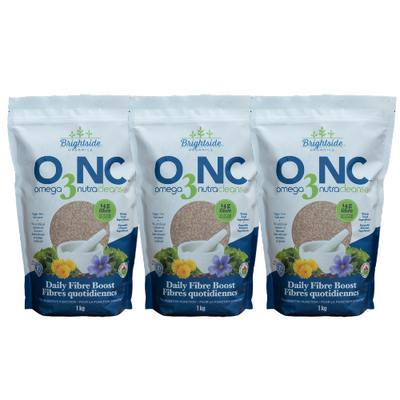Diabetes and Blood Sugar Management
Diabetes is an autoimmune condition that occurs when the body, specifically your pancreas, is no longer able to produce or appropriately manage insulin.
There is currently no cure for Diabetes. But there are ways to control and manage the disease through both diet and medical intervention. But before we dive into the ways to control this disease, let’s first discuss the role of blood sugar and insulin in the body.
The Role of Blood Sugar in the Body
When everything works the way it should, your pancreas produces insulin, a hormone that converts the sugar in your blood (glucose) into energy. This process is triggered by the intake of carbohydrates (you know that rush of energy you feel after eating a snack?), which, in turn, results in an increase in blood sugar.
The rise in blood sugar prompts the pancreas to release insulin into the bloodstream and then acts as a “key” to your body’s cells, opening the door to its cell walls and letting in glucose to be converted into energy.
For a person with Diabetes, however, the process by which the body produces insulin and converts blood sugar to energy is compromised. There are two ways this process can fail, resulting in the two types of Diabetes:
- Type 1 Diabetes results when the body stops producing insulin. This can happen for many reasons, such as the body’s immune system attacking the pancreas. Type 1 Diabetes is associated more with genetics and has less to do with diet and lifestyle.
- Type 2 Diabetes, on the other hand, occurs when the body doesn’t make enough insulin, or when cells don’t use insulin effectively. When this happens, glucose remains in the bloodstream, elevating blood sugar levels. Type 2 Diabetes may result from high body fat, a family history of Diabetes, low activity levels, and more.
Having sustained, long-term high blood sugar can lead to complications ranging from cardiovascular disease to kidney damage, nerve damage, eye damage, and foot damage.
Despite being an alarming diagnosis, there is a lot you can do to manage diabetes through diet and lifestyle.
Studies have shown that those who adopt a high-fibre diet can better manage blood sugar levels, and even lower their risk of premature mortality due to Diabetes.
How a Fibre-Rich Diet Can Help Control Diabetes
We talk a lot about fibre at Omega 3 NutraCleanse. We know it isn’t exactly an exciting conversation starter for most people. Yet we are passionate about fibre because we know how beneficial it is for your body (and that’s why our O3NC is jam-packed with it!). But can it really help control Diabetes? It can, and here is how!
- Fibre helps control and reduce blood sugar in your body: Adopting a fibre-rich diet can help reduce blood sugar in your diet—consequently reducing the strain that a lack of insulin and or poor insulin efficacy can cause. Fibre works by helping to slow the absorption of sugar into the bloodstream. Because of this, a high-fibre diet can work to mitigate spikes in blood sugar for people living with Diabetes.
- High-fibre diets can help promote a healthy weight: In addition to controlling spikes in blood sugar, incorporating more fibre into your diet can help prevent Type 2 Diabetes by promoting a healthy body weight. Eating more fibre - specifically soluble fibre - can help you lose belly fat by suppressing your appetite and increasing the diversity of bacteria in your gut, which can lower your risk of obesity.
Incorporating O3NC Into Your Healthy Diet and Lifestyle
Fibre can be found in many fruits, vegetables, and whole grains. But if you’re worried you aren’t getting enough fibre, consider adding an all-natural fibre supplement to your diet.
Omega 3 NutraCleanse is entirely natural, and made from five plant-based, organic ingredients rich in fibre and other healthy goodness.
In addition to the fibre that adding O3NC into your diet can provide, incorporating O3NC into a healthy diet can help control Diabetes through Omega 3 Fatty Acids. Omega 3s may assist with conditions associated with Diabetes, such as insulin resistance, high blood pressure, and abdominal obesity, helping restore your body to a healthy, well-functioning state.
So, whether you’re looking to manage your blood sugar, control symptoms related to Diabetes, lose belly fat, or just improve the way your body processes the food it eats, consider adding fibre-rich O3NC to your daily diet.


